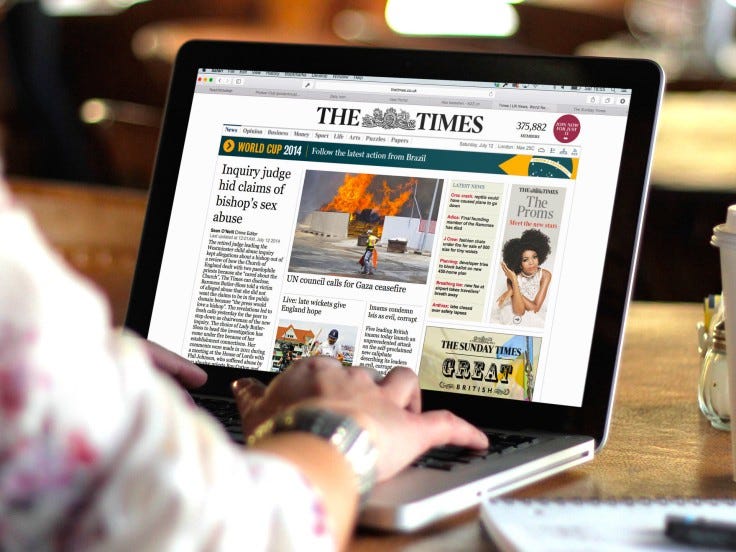How The Times and The Sunday Times needed time as much as big ideas to succeed
It's a decade since our original work with iconic news brands The Times and The Sunday Times. Achieving 'overnight success' takes longer than you expect.
Today marks ten years since we started work on The Times and The Sunday Times paywall strategy. Launched in July 2010, the paywall has certainly achieved its original aims of restoring value to journalism and generating meaningful financial returns for it from customers.
I want to reflect briefly on one key aspect of why The Times and The Sunday Times ultimately flourished with an approach that, at the time, was perceived as brave by many and likely suicidal by the rest.
Setting aside the design of the strategy and products, I’d argue that the organisation’s commitment to the strategic mission for the brand, and willingness to see it through over time, has played a key part in its’ ultimate success. Usually, a big leap needs more than even the best strategy: it needs corporate resilience, belief and commitment.
Overnight successes just aren’t a thing.
“Pixar is seen by a lot of folks as an overnight success, but if you really look closely, most overnight successes took a long time.”
― Steve Jobs
There persists a widespread — and wildly inaccurate — perception that the digital economy is littered with overnight successes.
Nothing could be farther from the truth: many of the best known brands in the market are now fairly long-established businesses. Of those that could be considered anything close to ‘overnight successes’, the number that are profitable businesses can be counted comfortably on one hand.
The reality is that strong, self-sustaining businesses take years, often decades to build. Having the conviction to stick with a strategy can make the difference between success and failure (or its millennial cousin, the exit).
People don’t change as fast as you think.
There are many reasons why strong businesses take time to build, but I believe that when we loop back to our original work with The Times and The Sunday Times, the most difficult challenge was to change perceptions and behaviours in their consumers. To shift from ‘free’ to ‘paid’ was always going to demand a reset in consumers’ value perception: in part, the original design of a high-bar paywall reflected that.
Achieving the shift in enough people to make the business a success was always going to take time.
I’ve seen many companies not do what News International did, which was to believe in their original vision, stick with the core strategy, and commit the business and its resources to deliver on them. Far too many back away when that overnight success doesn’t manifest itself, water down their approach or flip it completely, and never achieve their original aims as a result.
Strategic change demands courage.
I’m not saying that every business has the resources to wait out long-term success, nor am I saying that they should bloody-mindedly stick to a poor strategy no matter what. Not least because the type of ‘strategy’ that strait-jackets you that much should be consigned to the bin as fast as possible.
However, genuine step-change innovations and major organisational shifts of any kind do take time to play out in-market. Without the right support over a sustained period of time, no transformational change will realise its potential. This demands a commitment to a desired future state that comes naturally to the best leaders. Contrast this with political leaders, who reliably fail to tackle the big challenges properly because meaningful results will likely come long after their campaign for re-election. They simply lack the ability to think and act on a long enough timescale to deliver real change.
The closer the horizon for success, the more rash and panicked the decisions become in trying to achieve it. Often the most important things take time.
Digital-age strategy is still strategy.
Yes, we’re in the digital age. Yes, technological progress is moving at a faster pace than in human history. And yes, to a certain extent, the digital economy moves faster than the industrial economy or any of its predecessors did. But, when profitability is considered an essential requirement, businesses — real businesses — still take time to build.
So, if you find yourself where brands like The Times and The Sunday Times did a decade ago, pay attention to more than just what they did to get where they are today. Look at how long it took, how much focus and commitment was needed to get there, and whether you are brave enough to support the big ideas long enough that they can become one of those remarkable ‘overnight’ successes.




